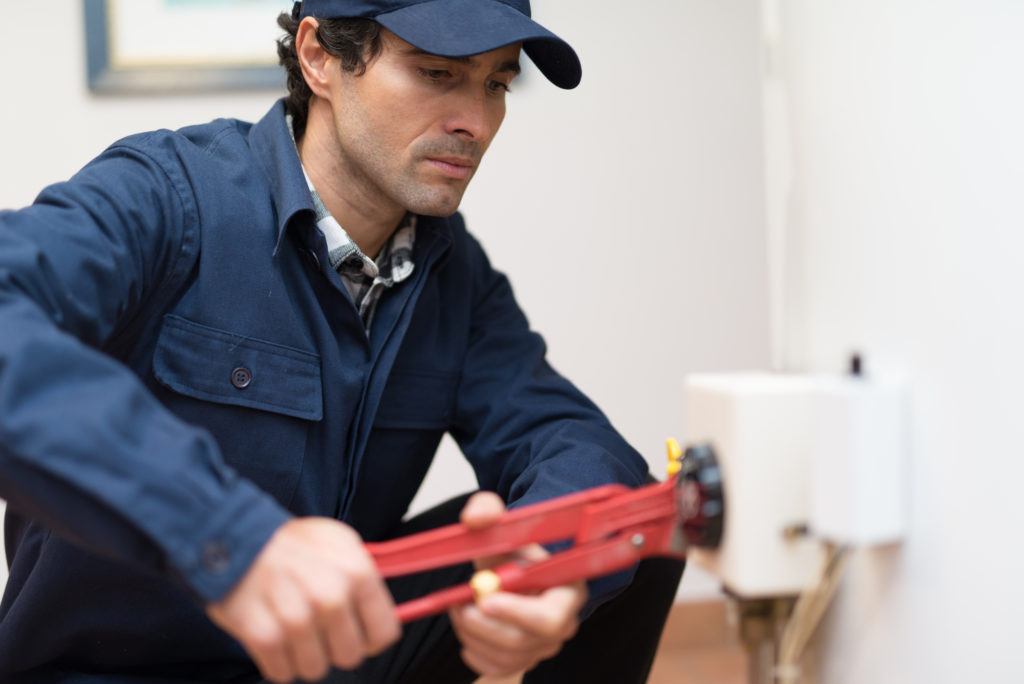Typical Heater Challenges And Their
Typical Heater Challenges And Their
Blog Article
They are making a few great points relating to Water Heater Repair and Troubleshooting in general in this content down below.

Visualize beginning your day without your routine hot shower. That currently establishes a bad tone for the rest of your day.
Every home requires a reliable water heater, but only a few know just how to manage one. One simple method to maintain your water heater in leading form is to look for faults routinely as well as fix them as soon as they appear.
Bear in mind to switch off your water heater prior to sniffing around for faults. These are the hot water heater mistakes you are more than likely to encounter.
Water too warm or too cold
Every hot water heater has a thermostat that establishes exactly how warm the water gets. If the water entering into your house is as well hot in spite of setting a convenient optimum temperature, your thermostat could be damaged.
On the other hand, also cold water might be due to a failed thermostat, a damaged circuit, or incorrect gas flow. As an example, if you use a gas hot water heater with a busted pilot light, you would certainly obtain cold water, even if the thermostat is in perfect problem. For electric heating systems, a blown fuse might be the culprit.
Inadequate warm water
Water heaters can be found in numerous dimensions, depending on your warm water needs. If you run out of hot water prior to every person has actually had a bath, your water heater is also small for your family size. You should think about mounting a bigger hot water heater tank or going with a tankless hot water heater, which occupies less area as well as is more sturdy.
Odd sounds
There are at least 5 sort of noises you can hear from a water heater, but the most typical interpretation is that it's time for the water heater to retire.
Firstly, you ought to know with the normal seems a hot water heater makes. An electric heating unit might sound different from a gas-powered one.
Standing out or banging sounds normally suggest there is a slab of sediment in your tanks, and it's time to clean it out. On the other hand, whistling or hissing sounds may merely be your valves letting some stress off.
Water leaks
Leakages can originate from pipelines, water links, valves, or in the worst-case scenario, the container itself. Over time, water will certainly rust the storage tank, and find its way out. If this happens, you require to change your water heater asap.
However, before your adjustment your entire tank, make sure that all pipelines remain in area and that each shutoff works perfectly. If you still require assistance recognizing a leak, call your plumber.
Rust-colored water
Rust-colored water means one of your hot water heater components is corroded. Maybe the anode pole, or the container itself. Your plumber will be able to identify which it is.
Lukewarm water
Regardless of how high you set the thermostat, you will not get any kind of hot water out of a heater well past its prime. A water heater's efficiency may minimize with time.
You will additionally obtain warm water if your pipes have a cross connection. This implies that when you turn on a faucet, hot water from the heating unit flows in along with normal, cold water. A cross connection is simple to spot. If your hot water faucets still run after closing the hot water heater valves, you have a cross connection.
Discoloured Water
Rust is a major source of dirty or discoloured water. Corrosion within the water storage tank or a falling short anode pole can cause this discolouration. The anode rod secures the container from rusting on the within and should be checked yearly. Without a pole or a correctly functioning anode pole, the hot water quickly corrodes inside the container. Call a specialist water heater specialist to determine if changing the anode rod will certainly repair the trouble; if not, replace your water heater.
Conclusion
Ideally, your hot water heater can last 10 years prior to you need a change. However, after the 10-year mark, you might experience any one of these faults much more frequently. Now, you need to add a brand-new water heater to your spending plan.
How To Troubleshoot 3 Common Water Heater Problems in Twin Cities
The Water Heater Is Leaking
A leaky cold water inlet valve A loose pipe fitting A leaky temperature and pressure relief valve A corroded anode rod A cracked tank Turn Off Your Water Heater:
Shut off your gas water heater by turning the gas valve on the unit to the “OFF” position. Shut off your electric water by switching its power off at your electrical panel. Look for a two-pole breaker labeled “water heater” and turn it to the “OFF” position. Move the ball valve connected to the water heater to be perpendicular to the piping at a 90° angle. Look for the Leak:
Depending on whether the water is coming from the tank's top or bottom, you’ll want to look for the leak in different locations.
If the leak comes from the top of the tank, carefully look for water escaping from the cold water inlet valve or loose pipe fittings. Rusted hot and cold water valves can have loose connections with the tank, with water leaking out of them.
https://mspplumbingheatingair.com/blog/how-to-troubleshoot-3-common-water-heater-problems
Do you like reading about Common Problems with Your Home Water Heater? Make a short review below. We will be delighted to hear your views about this review. We hope that you visit us again soon. Don't hesitate to take a moment to promote this content if you liked it. Many thanks for your time. Visit again soon.
Immediate support available. Report this page